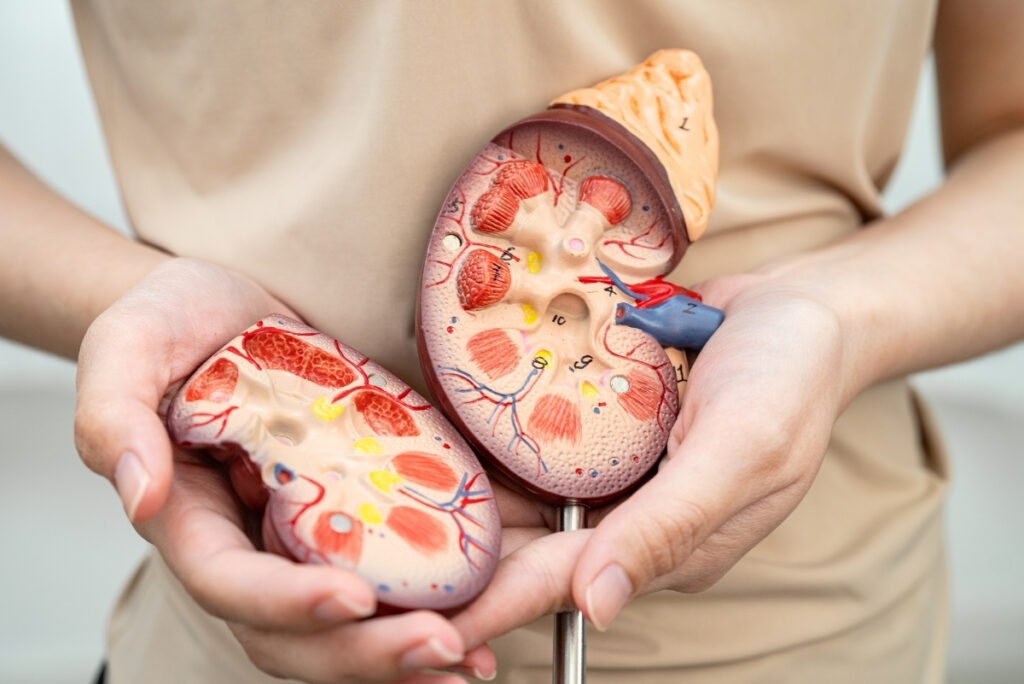Recent Advances in Kidney Cancer Treatment in 2025

Introduction
Kidney cancer, especially renal cell carcinoma (RCC), has witnessed remarkable treatment breakthroughs in 2025. These include new treatments, surgery and diagnostic approaches that provide patients everywhere with better outcomes.
Understanding Kidney Cancer
Kidney cancer begins in the kidneys, with RCC being the most common. It’s usually silent, not causing symptoms early on. Surgery, chemotherapy, and radiation were the historical options, while recent advancements have increased the repertoire of effective treatments.
Breakthroughs in Medical Therapies
- Immunotherapy and Targeted Therapy Combinations: New clinical data have emphasised that immunotherapy may achieve the greatest benefits when paired with targeted therapies. The pembrolizumab (PD-1 inhibitor) and axitinib (VEGF receptor inhibitor) combination has exhibited durable clinical benefits, with more than five years of follow-up revealing better survival for advanced RCC patients.
Also, cabozantinib/nivolumab/ipilimumab triple therapy has exhibited encouraging signs of enhancement in progression-free survival and response rates for advanced RCC Kidney Cancer Association. - Targeted Agents: Zanzalitinib, a new VEGFR TKI, has become a hopeful targeted therapy. Together with nivolumab, it exhibited anticancer activity, with almost two-thirds of patients having stable or improved cancer status at 12 months of follow-up.
Advancements in Surgical Techniques
- Robotic-Assisted Surgery: Robotic-assisted surgeries – specifically robotic partial nephrectomy – transformed kidney cancer care. These minimally invasive procedures have a distinct advantage.
- Precision: With more surgical precision, surgeons can now remove the tumour and keep more of the healthy kidney.
- Reduced Recovery Time: Patients have less time in the hospital and recover more quickly.
- Minimised Complications: with smaller incisions comes less post-operative pain and lower risk of infection, Cure Today.
- Augmented Reality Integration: The introduction of AR to robotic surgery has taken this to the next level. AR aids surgeons by superimposing the 3D renal anatomy, which facilitates more precise localisation and resection of the tumour.
Diagnostic Innovations
- Liquid Biopsies: Liquid biopsies have emerged as a minimally invasive diagnostic modality. They sense tumour-specific or tumour-derived DNA or RNA in plasma, allowing early detection of RCC and treatment responses.
- Artificial Intelligence in Imaging: AI algorithms are also being used to analyse imaging data, enhancing the precision of RCC diagnosis and staging. AI can help find nuanced shifts in imaging scans that could signal early-stage cancer.
- Global Initiatives and Accessibility: Working to scale access to leading kidney cancer treatments worldwide. As an example, in India, AIIMS Raipur has recently inaugurated ‘Devhast’, central India’s 1st robotic surgery centre in a government hospital, to give world-class care at the patients’ doorstep and eliminate the need for patients to travel to metro cities.
CONCLUSION
The pipeline of multiple cancer drugs to the 2025 landscape of kidney cancer treatment in 2025 terms of medical therapies, surgical techniques and diagnostic tools. Such advances don’t just save lives; they save the life of the patient. As research progresses, the future looks bright for increasingly efficient and accessible kidney cancer therapies.
